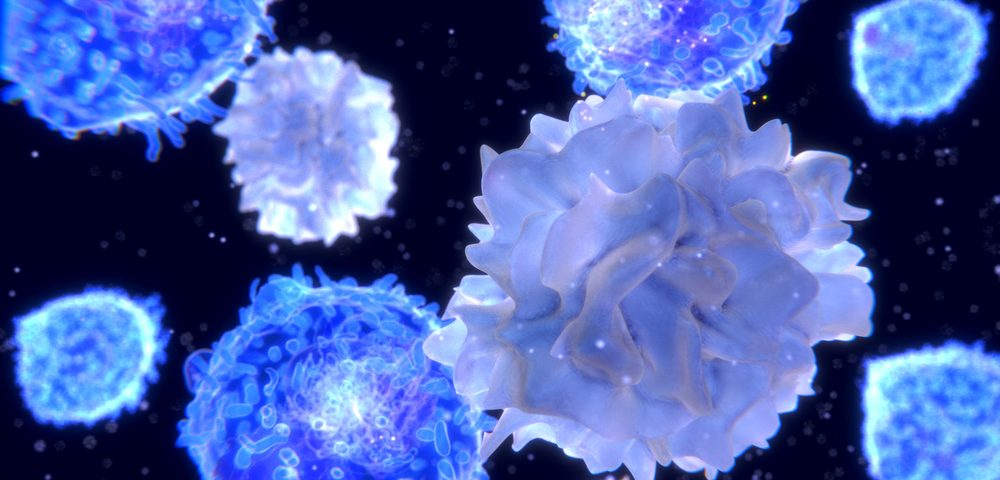Eighty-two percent of patients with refractory aggressive lymphoma have responded to Kite Pharma‘s KTE-C19 chimeric antigen receptor (CAR) T-cell therapy, and 36 percent have achieved complete remission, according to preliminary results of a clinical trial.
Chimeric antigen receptor T-cell therapy is one of today’s most promising cancer immunotherapies. The first step in the process is to collect a patient’s T-cells, and engineer them to recognize specific tumor proteins and destroy tumor cells. Then specialists increase the number of modified T-cells and inject them back into the patient.
Kite Pharma engineered KTE-C19 to recognize the CD19 protein that is widely expressed in lymphomas and leukemias.
The John Theurer Cancer Center is one of the centers testing KTE-C19. The large ZUMA-2 Phase 2 clinical trial (NCT02601313) is evaluating KTE-C19’s effectiveness against relapsed/refractory mantle cell lymphoma. The Theurer center is part of the Hackensack University Medical Center.
Preliminary results “showed that 36 percent of patients achieved a complete response at 6 months and responses were highly durable,” Andre Goy, MD, the Theurer center’s chairman, director, and chief of lymphoma, said in a press release. “This is quite remarkable for patients with aggressive B-cell Non-Hodgkin lymphoma refractory to multiline of prior chemotherapy. We hope this will soon provide a true hope and option for patients who failed standard therapy including high dose chemotherapy.”
Kite Pharma is seeking U.S. Food and Drug Administration approval for the therapy.
“I am very proud that JTCC [the Theurer center] has been involved in CAR-T cell therapy for nearly a decade with the NCI [National Cancer Institute] and Kite Pharma,” Goy said. “CAR-T cell therapy is one of the first forms of gene therapy in cancer and one of the most impressive new tools in immunotherapy. CAR-T cell therapy has shown remarkable activity in many B-cell lymphomas subtypes and refractory lymphoblastic leukemia, opening an entire new chapter in cancer care.”
The Theurer center has been involved in CAR T-cell therapy since the NCI developed the approach, and has done multiple studies on the therapy over the years.
Goy made a KTE-C19 presentation at the 58th American Society of Hematology’s Annual Meeting & Exposition in December 2016. It dealt with the benefits that KTE-C19 afforded patients with no other treatment options. The presentation was titled “LBA-6: Kte-C19 (anti-CD19 CAR T Cells) Induces Complete Remissions in Patients with Refractory Diffuse Large B-Cell Lymphoma (DLBCL): Results from the Pivotal Phase 2 ZUMA-1.”
Theurer center researchers also co-authored a study on using CAR T-cells to prevent cancer from returning after doctors performed stem cell transplants aimed at eliminating the cancer.
The research showed that the therapy brought about remission of blood cancers that could have progressed after a stem cell transplant. The treatment also diminished the risk of a patient developing life-threatening graft-versus-host disease, the study showed.
The research was published in the Journal of Clinical Oncology in January of 2016.
“Dr. Goy and JTCC are at the forefront of novel therapies development,” said Robert C. Garrett, co-CEO of Hackensack Meridian Health. “Hackensack Meridian Health is proud of the groundbreaking achievements JTCC is making and believes their innovative work will lead to incredible advances in treating aggressive forms of cancer.”


